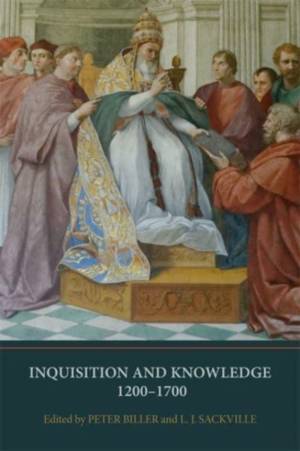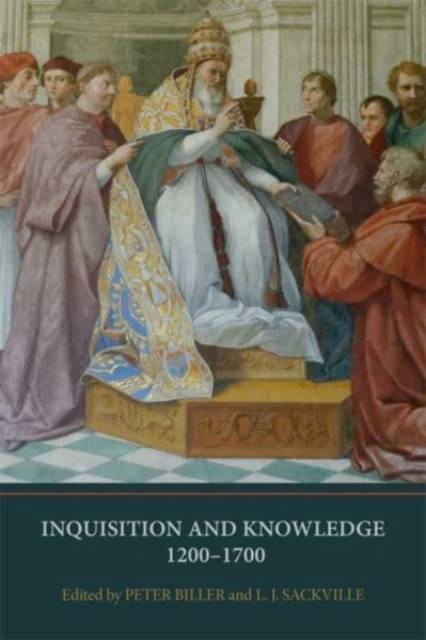
- Afhalen na 1 uur in een winkel met voorraad
- Gratis thuislevering in België vanaf € 30
- Ruim aanbod met 7 miljoen producten
- Afhalen na 1 uur in een winkel met voorraad
- Gratis thuislevering in België vanaf € 30
- Ruim aanbod met 7 miljoen producten
Zoeken
Inquisition and Knowledge, 1200-1700
€ 209,45
+ 418 punten
Omschrijving
Essays considering how information could be used and abused in the service of heresy and inquisition. The collection, curation, and manipulation of knowledge were fundamental to the operation of inquisition. Its coercive power rested on its ability to control information and to produce authoritative discourses from it - a fact not lost on contemporaries, or on later commentators. Understanding that relationship between inquisition and knowledge has been one of the principal drivers of its long historiography. Inquisitors and their historians have always been preoccupied with the process by which information was gathered and recirculated as knowledge. The tenor of that question has changed over time, but we are still asking how knowledge was made and handed down - to them and to us - and how their sense of what was interesting or useful affected their selection. This volume approaches the theme by looking at heresy and inquisition in the Middle Ages, and also at how they were seen in the sixteenth and seventeenth centuries. The contributors consider a wide range of medieval texts, including papal bulls, sermons, polemical treatises and records of interrogations, both increasing our knowledge of medieval heresy and inquisition, and at the same time delineating the twisting of knowledge. This polarity continues in the early modern period, when scholars appeared to advance learning by hunting for medieval manuscripts and publishing them, or ensuring their preservation through copying them; but at the same time, as some of the chapters here show, these were proof texts in the service of Catholic or Protestant polemic. As a whole, the collection provides a clear view of - and invites readers' reflection on - the shading of truth and untruth in medieval and early modern "knowledge" of heresy and inquisition.
Specificaties
Betrokkenen
- Uitgeverij:
Inhoud
- Aantal bladzijden:
- 360
- Taal:
- Engels
- Reeks:
- Reeksnummer:
- nr. 10
Eigenschappen
- Productcode (EAN):
- 9781914049033
- Verschijningsdatum:
- 1/02/2022
- Uitvoering:
- Hardcover
- Formaat:
- Genaaid
- Afmetingen:
- 156 mm x 234 mm
- Gewicht:
- 857 g

Alleen bij Standaard Boekhandel
+ 418 punten op je klantenkaart van Standaard Boekhandel
Beoordelingen
We publiceren alleen reviews die voldoen aan de voorwaarden voor reviews. Bekijk onze voorwaarden voor reviews.






